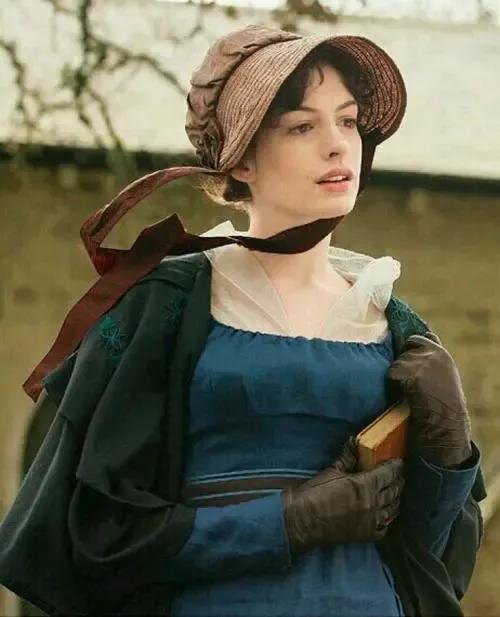Perhaps it is in this "slightly lonely" day that there is so much leisure time to enjoy so many film and television works.
As the plot unfolds, the dreary spread of emotions begins to envelop me.
This made me realize that the beautiful scenery of the countryside and villages in the countryside had nothing to do with Jane Austen..."
Just like Jane's "Pride and Prejudice" shows the different attitudes of young girls from middle-class families in townships to the issue of marital love.
It also reflects the author's own view of marriage. It is wrong to marry for property, money and status.
And it would be foolish to get married without taking into account the above factors. Therefore, she opposed both marrying for money and using marriage as a child's play.
She stressed the importance of the ideal marriage and made the feelings of both men and women the cornerstone of the ideal marriage.
The heroine of the book, Elizabeth, comes from a small landlord family and is loved by darcy, the son of a rich man.
Ignoring the gap between mendi and wealth, Darcy proposes to her, but is refused.
Elizabeth's misunderstanding and prejudice against him was one reason, but the main thing was that she hated his arrogance.

Because this arrogance of Darcy is actually a reflection of the difference in status, as long as this arrogance exists, there can be no common thoughts and feelings between him and Elizabeth.
Nor is there a dream marriage. Later Elizabeth observed Darcy's life and a series of actions.
In particular, I saw that he changed his arrogant and conceited attitude in the past, eliminated misunderstandings and prejudices against him, and thus concluded a happy marriage with him.
Elizabeth's different attitude toward Darcy's several marriage proposals actually reflects women's pursuit of personal independence and equal rights. Of course, this is also the progressive significance of Elizabeth's character.
Through Jane's guidance and warnings on the marriage of her niece, it also seems to indicate to the world that there are few good men and even fewer good men who can feel.
So much so that when she said these words to Bridges without losing her true colors, I had reason to believe that Jane was hysterical.
From many of Jane's works, it can be felt that Jane is a woman who observes life carefully and judges problems sharply and wisely.
But this may often be the case, and the more cautious you become about some issues.
It's also a causal relationship, like many of Jane's works, and the structure of the story is implicitly causal.
Jane's expression in the illness was so haggard...
As I struggled to say to my little niece, "The widower with six children will give it to you," I think Jane's mind must be reminiscent of the day she met Haden.
Because of haden's gentlemanly demeanor, because of haden's handsomeness, because of haden's youth.
That night, jane and Haden sat on a couch, listening to their niece play the piano, and I had a hunch that Jane's eyes as she looked at Haden began to become heavy and deep.
Perhaps it was only in this instant that Jane began to feel that she was no longer young.
Although it is possible that Jane has made many twists and turns in her work with the help of her characters.
Maybe love itself is a difficult thing to interpret, even if Jane herself.
It is obvious that they are in love, but they must be separated by various spiritual and material factors.
Cross the township to London, and then look at the corners of the world.
There are too many such examples...
We always find our flaws in those who are free and uninhibited, and see the life we can't live.
The pain of feeling unable to act spontaneously. We were told from an early age to follow the rules, to be as consistent as possible, and not to take the road that was off the beaten track.
Living a life similar to most people, not good or bad, stable, but always feel that something important is missing in life.
We are always drawing a circle in a fixed circle, and we dare not take half a step.
In fact, we don't know that love is sometimes broken, just because we are not brave enough.
The picture of the outskirts of the township is still so vivid, the green lawns, the elegant farms, the joyful laughter of the children in the carriage. It's just that night is coming, and Jane is gone...